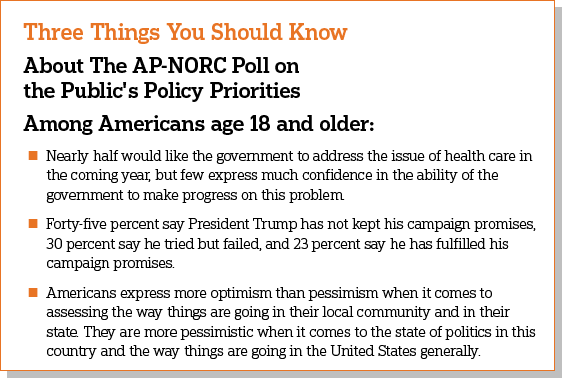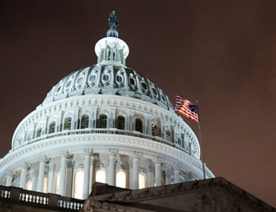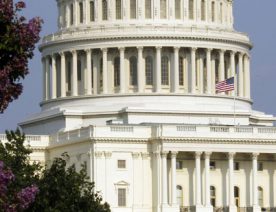
Health care, taxes, immigration, the environment, and education top a long and diverse list of the American public’s policy priorities for the coming year. The public would like to see Washington expend considerable effort dealing with their top concerns for the country. But, even as Republicans control the White House and both houses of Congress, Americans have little confidence that much progress will be made on these important problems.
In a recent poll conducted by The Associated Press-NORC Center for Public Affairs Research, Americans offer a varied catalog of problems for the government to address next year, including concerns that range from racism to terrorism to unemployment. In order to explore the public’s agenda for the next year, the poll accepted up to five volunteered issues from each respondent.
There are substantial partisan differences on several high-profile problems, including the importance of the environment, immigration, education, and terrorism.
Republicans tend to express more optimism about how things are going in the United States and the state of its politics and government than Democrats. Closer to home, both Democrats and Republicans are more optimistic than pessimistic about the circumstances of their own state and their local community.
However, less than 10 percent say President Donald Trump has succeeded in making the country more united. In addition, 43 percent say the country’s best days are in the future, while 55 percent think the good times are in the past.
In the year since Trump was elected, few Americans think he has been successful in fulfilling his campaign promises. And while various economic indicators suggest an improved economy, most Americans do not regard either their own circumstances or the country’s as having improved under Trump’s stewardship.
The nationwide poll was conducted November 30–December 4, 2017, using the AmeriSpeak Panel, the probability-based panel of NORC at the University of Chicago. Online and telephone interviews using landlines and cell phones were conducted with 1,444 adults.





